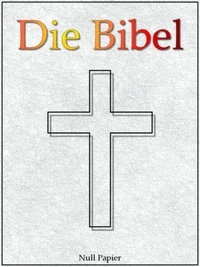In "The Bondage of the Will, " Martin Luther presents a profound theological treatise that grapples with the nature of free will and divine sovereignty. Written in response to Erasmus's "On Free Will, " Luther articulates a compelling argument for the Lutheran doctrine of justification by faith alone. With an incisive rhetorical style that combines clarity of thought with passionate conviction, the book delves into the implications of human sinfulness and the necessity of God's grace, challenging the Renaissance humanist perspective of self-determination prevalent in Luther's time.
This work not only establishes Luther's theological framework but also signals a pivotal moment in the Reformation movement. Martin Luther (1483-1546), a seminal figure in the Reformation, was driven by his own spiritual struggles and profound insights into scripture, leading him to question the established theological norms of the Catholic Church. His deep commitment to the teachings of the Bible and his quest for spiritual solace ignited his conviction that human beings are inherently unable to achieve salvation through their own efforts, thus forming the basis for his arguments in "The Bondage of the Will." "The Bondage of the Will" is an essential read for anyone seeking to understand the complexities of Christian theology and the historical context of the Reformation.
Through its rigorous examination of free will and divine intervention, the book invites readers to reflect on their own beliefs about autonomy and faith, making it a timeless work that remains relevant in contemporary theological discourse.
In "The Bondage of the Will, " Martin Luther presents a profound theological treatise that grapples with the nature of free will and divine sovereignty. Written in response to Erasmus's "On Free Will, " Luther articulates a compelling argument for the Lutheran doctrine of justification by faith alone. With an incisive rhetorical style that combines clarity of thought with passionate conviction, the book delves into the implications of human sinfulness and the necessity of God's grace, challenging the Renaissance humanist perspective of self-determination prevalent in Luther's time.
This work not only establishes Luther's theological framework but also signals a pivotal moment in the Reformation movement. Martin Luther (1483-1546), a seminal figure in the Reformation, was driven by his own spiritual struggles and profound insights into scripture, leading him to question the established theological norms of the Catholic Church. His deep commitment to the teachings of the Bible and his quest for spiritual solace ignited his conviction that human beings are inherently unable to achieve salvation through their own efforts, thus forming the basis for his arguments in "The Bondage of the Will." "The Bondage of the Will" is an essential read for anyone seeking to understand the complexities of Christian theology and the historical context of the Reformation.
Through its rigorous examination of free will and divine intervention, the book invites readers to reflect on their own beliefs about autonomy and faith, making it a timeless work that remains relevant in contemporary theological discourse.

 , qui est-ce ?
, qui est-ce ?